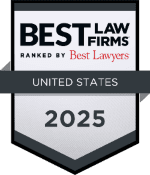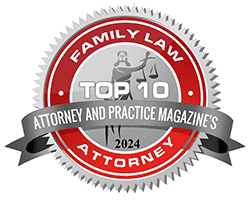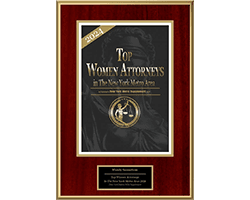
Is It Time to Reverse O'Brien?
Notes and comments by Elliot D. Samuelson, Editor
Soon after the blockbuster decision by the Court of Appeals in O'Brien v. O'Brien, 66 N.Y.2d 576, 498 N.Y.S.2d 743 (1985), some 17 years ago, both bench and bar speculated whether the high court would limit its holding to the fact pattern presented (the wife supported the husband during medical school and enabled him to obtain his medical license) or expand it to other persons enjoying enhanced earnings made possible by an advanced degree. At that time, few believed that the decision would become far-reaching and applied to exceptional wage earners without degrees or licenses who enjoyed enhanced earnings. (See, for example Hougie v. Hougie, 261 A.D.2d 161, 689 N.Y.S.2d 490 (1st Dept. 1999) [enhanced earnings capacity as investment banker was subject to equitable distribution despite lack of license]; Elkus v. Elkus, 169 A.D.2d 134, 572 N.Y.S.2d 901 (1st Dept. 1991) [enhanced earnings of career as celebrity opera singer was subject to equitable distribution.], appeal dismissed without opinion, 79 N.Y.2d 851, 580 N.Y.S.2d 201 (1992).)
The Court of Appeals had several chances to curtail the reach of O'Brien, but chose not to do so. Most recently, in Grunfeld v. Grunfeld, 94 N.Y.2d 696, 709 N.Y.S.2d 486 (2000), the court had the opportunity to revisit the merger doctrine (the professional license merged into a professional practice and, therefore, had no value), but once again failed to do so. Rather, the court set limits on the award of maintenance when a valuation of a professional license was made, holding that the earning stream enjoyed by the professional could not be counted twice (a double dip, so to speak) and used as a basis to award maintenance when the projected income stream was used to compute the enhanced earnings that the license or degree would afford.
The Grunfeld case was remanded to the trial court for further computation. Justice Gish, in a well-reasoned decision, concluded that Mr. Grunfeld's law license had no residual value, since his business income stream was exhausted when maintenance was fixed for the wife. (Query: would the same result be obtained if child support, and not maintenance, was at issue?)
Interestingly, at the time of oral argument of Grunfeld before the court, it was not suggested that the O'Brien decision had created a legal fiction that had caused severe economic hardship to a license holder, and should be reversed or modified. Rather the argument was limited to multi-tasking the income stream. Such argument, which actually rests in the constitutional rights to equal protection under the law (only a license holder is treated this way), will have to await another appeal to the high court. Nonetheless, it is quite clear that many in the legal community believe that it is grossly unfair to value a license and a professional practice, as well as award maintenance and child support from the same income stream. No non-licensed businessman has the same economic burden placed upon him by the court. Why should a professional? It is just this unequal and unique treatment by the courts that might support a constitutional attack upon such application of the equitable distribution statute solely to professionals, and no other group of litigants.
In order to understand the grave injustice placed upon licensed professionals, consider the following hypothetical examples:
A college graduate begins a wholesale food distribution business during the parties thirty year marriage. At the time of divorce, the business is valued at $300,000. The wife gave up her career to raise the children. Both parties are in their fifties. Here, only the business will be valued, and the wife is likely to obtain non-durational maintenance.
Another college graduate, obtains a law license and starts a small general practice during the parties' thirty year marriage. At the time of divorce, the lawyer earns $300,000 a year. The parties are also age 55. The wife never worked and raised the children. Here, both the license and practice will be valued, and the wife is also likely to receive non-durational maintenance.
The businessman, in our example, will be exposed to paying the wife in equitable distribution, one-half or $150,000 of the appraised value of his business. Or, he might elect to sell the business, and pay the wife one-half of the net proceeds received. The lawyer has no such option. He will have a value placed on his license based upon his remaining work life of ten years, producing enhanced annual earnings of approximately $2,000,000 ($200,000 more than the average college graduate x 10 = $2,000,000), discounted to present value, yields a present value of about $900,000.) The license cannot be sold. In addition, the practice will generally be valued between one and one and a half times net income, or conservatively, $300,000. The lawyer cannot sell the practice, since no one would be willing to pay such sum to take over a law practice that is based on personal contacts and rainmaking ability. He is faced with equitable distribution exposure of one-half the appraised value of his practice or $150,000 , and one-half the appraised value of his license or $450,000, or a total payment due to the wife of $600,000, twice that of the businessman. His only viable remedy is to file a bankruptcy proceeding to wipe out his obligation. If, on the other hand, he is fortunate enough to have a deferred compensation plan of, say $650,000, he would be compelled to transfer his life savings to his wife, leaving him with nothing for retirement.
By contrast, the businessman walks away virtually scot-free, when compared to the lawyer. His exposure is almost one-half million dollars less than the lawyer. He has the option to continue his business or sell it, and only one-half of his savings, or pension funds, rather than one hundred percent, will be at risk. Both will have maintenance obligations, but it is far more onerous to the lawyer than the businessman, since he will have no investment income to offset this expense. It is not difficult to realize the grave economic injustice caused to the professional who must pay his wife $450,000 more than the businessman, and lose all of his retirement assets, while the businessman will retain at least one-half of his remaining assets. The legal fiction imposed by the courts that the license has value and does not merge into a practice, has essentially caused the lawyer to lose his life saving, and should finally come to an end. The question then becomes, what can be done to alleviate this disparity? There are several solutions that come to mind.
The first would be to revisit the merger doctrine and consider merging the license into the practice, so only the practice has economic vitality for equitable distribution. Another, would be to come to the grips with the fact that a professional practice cannot be sold, and therefore eliminate it from consideration, and only value the license. The courts could then consider the most equitable option, based upon the facts of the entire case. In this way, the professional will not be crushed with an economic burden that he cannot shoulder, and will eliminate the prospect of a bankruptcy. When the issue of maintenance and child support enters the equation, a remedial change by the courts, or a legislative amendment to DRL §236B, becomes a quite compelling mandate. If the courts will not act, the legislature should.
Put another way and paraphrasing the words of George Orwell, if all spouses are equal in the eyes of the law, why are some more equal than others?
*Elliot Samuelsonis the senior partner in the Garden City matrimonial law firm of Samuelson Hause PLLC and is included in "The Best Lawyers of America" and the "Bar Registry of Preeminent Lawyers in America." He has appeared on both national and regional television and radio programs, including Larry King Live. Mr. Samuelson can be reached at (516) 294-6666 or Samuelson@SamuelsonHause.com.

-
Your Questions AnsweredDuring an arduous time, we help you make wise decisions.
-
Exclusive Legal PracticeYou except a certain level of excellence. We deliver.
-
Types of Divorce in New YorkLead the way to a more civilized approach to divorce.

Long Island Divorce
Our Expertise & Knowledge is Unrivaled







[1].2210040953071.png)
